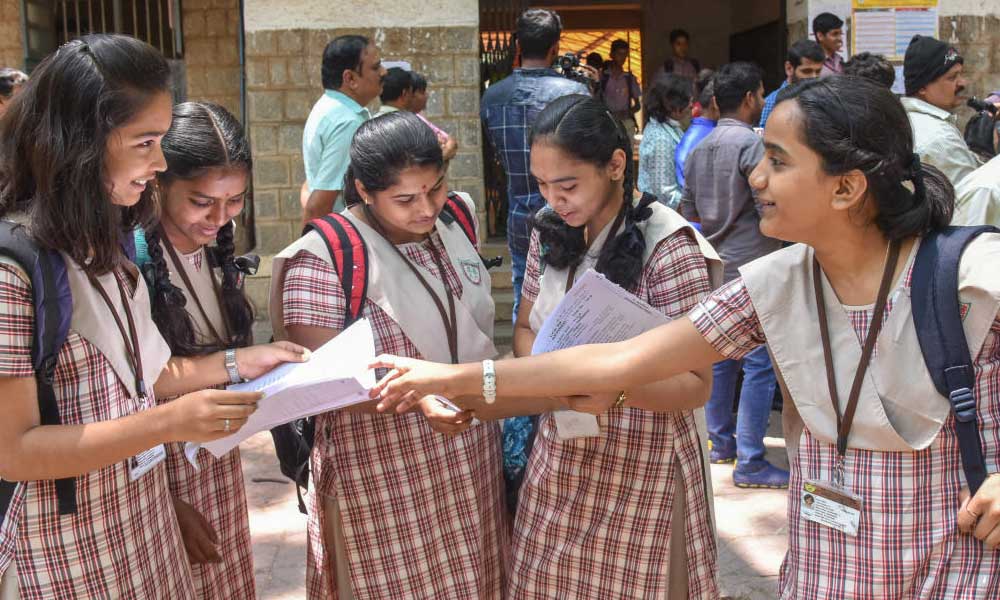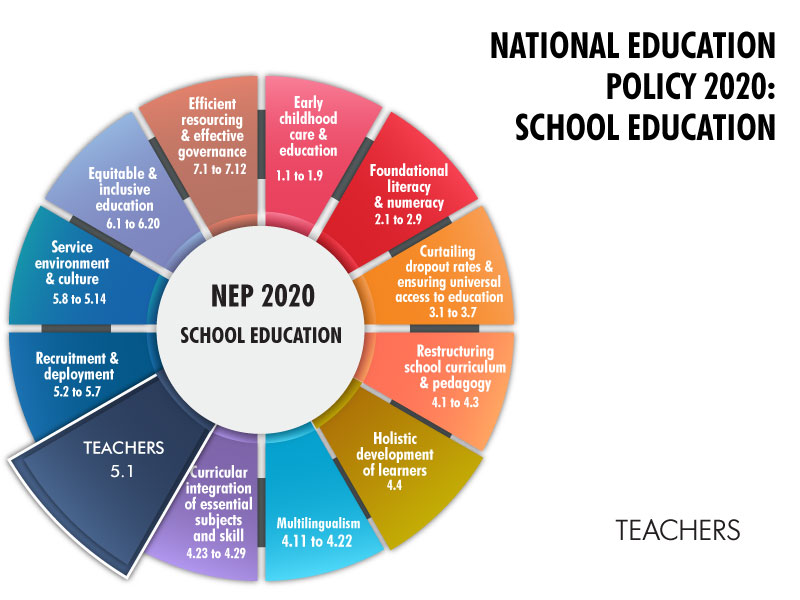The “New Education Policy: A Progressive Policy with Diverse Challenges,” in a real sense, is true to its literal meaning has outlined a lot of changes in the existing education structure with a vision to reform it on par with developed countries. The Union Government has approved the New Education Policy (NEP) and released to the public recently. A committee under the Chairmanship of Dr. Kasturirangan was created to study the education structure in India and across the globe and to suggest policy measures to reform the education sector in India. Accordingly, the committee had submitted a report to the Ministry of HRD, and a draft copy was released for public review and suggestions. Since the draft’s release to the public, there were many apprehensions and discussions among policymakers, educational institutions, parents, and students. Also, the concerns varied from region to region across India, mainly on the grounds of Hindi’s imposition as a mandatory language. After several consultations and modifications, the union cabinet has finally approved, and HRD has released the policy to the public. Since independence, the education policy had been changed four times, last being 34 years ago.

Progressive Changes of NEP 2020
Starting from changing the exiting system’s basic structure, removing barriers between arts and science, change of accreditation system of institutions, and increased the allocation of financial assistance, the policy has a lot of progressive changes in its basket. A brief on them are as below.
Primary and Secondary Education:
- The policy has deviated from the traditional structure of 10+2 general arrangement to a 5+3+3+4 form, where it has included two more early years of child i.e., age between 3-5 informal education.
- The initial five years of age from 3 to 8 mainly focus on early child care and protection, followed by three years i.e., from ages 8 to 11, focuses on fundamental literacy and numeracy.
- Age 11 to 14 focuses on higher primary and age 14-18 focuses on secondary education by removing barriers between arts and science, allowing students to choose the subjects of their own choice.
- It has made teaching in mother tongue or regional language mandatory up to class 5, and if required, up to grade 8 to remove the language barrier for the kids to learn and understand the concepts.
- It has also allowed the states to make decisions on three-language formula and allowed students to choose the language of their choice for learning.
- It has also introduced the programming and computation at the level of Class 6.

Higher Education:
- It introduces a flexible four-year degree course with various entry and exit points. Also, it has introduced a credit-based system with vocational education.
- It has abolished the M.Phil. Courses, by allowing completion of existing enrolments and by discontinuing fresh enrolments.
- It has also decided to do away with affiliation to universities in a phased manner in the next 15 years.
- It provides provision for establishing the independent regulator with separate verticals for regulation, standard-setting, accreditation, and funding, and providing certification and rating to institutions and eventually making them autonomous bodies.
Structural Changes
- A separate department for developing digital education under the Ministry of Human Resource and Development (MHRD) will be established.
- National Education Technology Forum – a dedicated autonomous forum to research in education and the ideation of policies.
- Allowing renowned global institutions to come to India and open their branches and offer courses here.
Financial Assistance:
It has increased the GDP allocation to 6% from the existing just over 1%.
- Incentives for backward class sections.
- In addition to the mid-day meal, it outlays the provision for breakfast and provides nutritional food to the child.

Timelines:
The policy is meant to transform the education system by 2040. The implementation will be done in a phased manner, based on time, region, and type of undertaking. While some are of short term, others are of the long term. Some are realizable within timelines, while others are not.
- The policy changes the Ministry of HRD to the Ministry of Education with immediate effect.
- Existing M.Phil. Courses to continue until they complete their degree, while new admissions will not be allowed.
- A standard entrance test to be conducted by a National testing agency by the end of December 2020 for admission into universities.
- NCERT to formulate the curricular framework for new school structure, including early childhood care, by next academic year.
- The National Foundational Literacy and Numeracy Mission to be completed by 2025.
Challenges of NEP:
Every change or reform, be it good or bad, should have challenges and difficulties. Otherwise, it will not be reform; neither may it bring good to it. Similarly, the NEP 2020 has many challenges in terms of implementation, the realization of targets within the given timelines, and legal and statutory backup.

Implementation:
- Although the allocation of 6% of GDP is a welcome and much-needed move, and it has been seen in the last few decades that similar promises and policies have never seen the light of the day. Mr. Shashi Tharoor, a Rajya Sabha MP, opines that the Ministry of HRD will come against the Ministry of Finance complaining about budget allocation difficulties.
- Another challenge is the implementation of teaching in mother tongue in central government institutions like Kendriya Vidyalayas. It has been made clear about this, neither by the Ministry nor by the institutions.
Realization within set timelines:
Achieve gross enrolment ratio of 50% in higher education and 100% in secondary education considering the current rates of 25.8% and 68%, respectively.
Statutory ad Legal Backup:
- The NEP is, for now, a policy, has no legal protection. As education is a concurrent subject, the states and other agencies’ formulation of rules and implementation will determine the effectiveness of the policy.
- As the NEP outlays for an independent regulator for providing accreditation and making institutions autonomous, it requires a statutory backup for such independent regulators.
Others:
- As the policy brings changes in the structure’s fundamental nature, it would be challenging to implement in the rural areas and government institutions that lack resources, infrastructure, and structural hindrances.
- Many private organizations may see this as an opportunity and charge a hefty fee in the name of quality of education by commercializing it.
Way forward:
Despite having many challenges, the NEP 2020 shows a ray of hope in structural reforms in India’s education sector. Everyone has to try holistically to implement and realize the policy and see the light of the day. The Sooner, the better.
Also read: Ethical hacking and the issues related to it.
Related posts:
- 10 Impacts of the new education policy on students
- 9 Negative impacts of hostel life on a student
- Nine positive impacts of hostel life on a student
- Negative effects of social media on students
- 10 Effects of unhealthy and toxic relationship on students
- 13 Bollywood movies which include mental disorders Part-2
- Are the Gen Z kids over with reading books?
- 5 TIPS TO IMPROVE YOUR BRAIN POWER




















